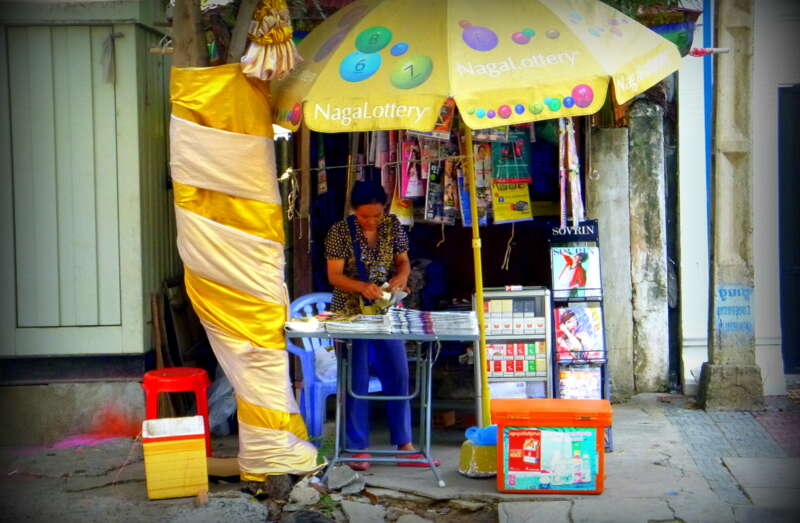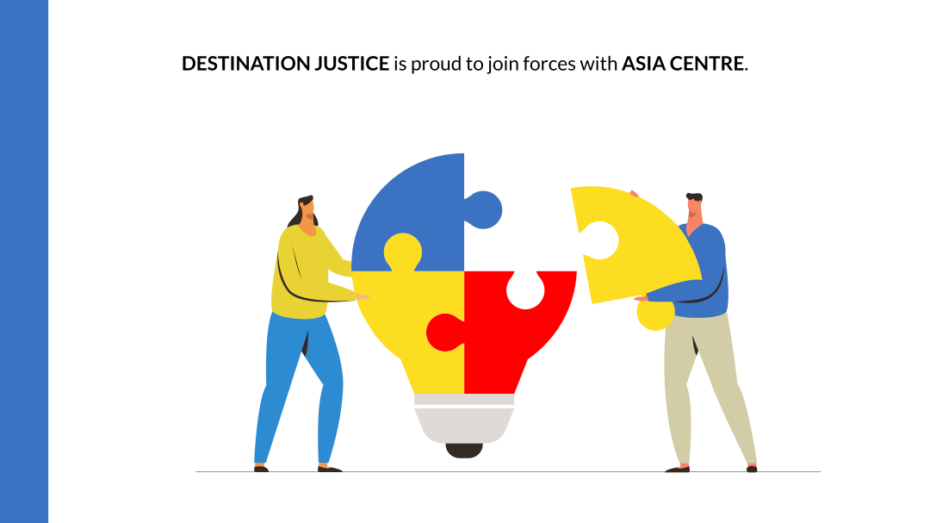In the wake of International Human Rights Day, Rainbow Community Kampuchea (RoCK) and Destination Justice are releasing a new episode of Khniom Chang Deung (“I want to Know”) addressing the topic of Sexual Orientation, Gender Identity and Gender Expression (SOGIE). This episode is part of the fruitful collaboration between the two organisations and hopes to support RoCK’s effort in sensitizing the Cambodian people to the issue of SOGIE.
About SOGIE
Sexual Orientation refers to an individual’s physical, romantic sexual, and/or emotional attraction to a specific gender or genders. As such, individuals may identify themselves as lesbian or gay (that is, when they are attracted to the same gender as theirs), bisexual (that is, when they are attracted to both female and male genders), asexual (that is, when they do not have sexual feelings or desire towards any gender), or straight (that is, when they are attracted to the opposite gender).
Gender expression may be expressed in particular through behaviour, dress, voice, names, and pronouns an individual may use to identify themselves. For example women dressing and behaving like men is the expression of their gender. This is the same for men dressing and behaving like women.
Gender identity refers to a person’s deep internal feeling of who they truly are, even if who they are is opposite to society’s traditional expectation of them. For example, a transgender woman is born in a man’s body but has a deep internal feeling that she is truly a woman; also a woman who loves other women (a lesbian) knows this as the truth inside her even though society traditionally expects her to love a man.
As such, SOGIE constitutes a spectrum and is a shared characteristic among all human beings, not only those individuals identified as Lesbian, Gay, Bisexual, Transgender, or Queer. LGBTIQ individuals may fear discrimination on the basis of their SOGIE in many areas of their lives.
These areas include, but are not limited to, access to education, healthcare, employment, or even marriage. While the Cambodian legal framework forbids any form of discrimination, no explicit regulation exists so as to specifically address forms of discrimination faced by LGBTQ individuals based on their SOGIE.
Interview
Sofok Sorng, now a Project Officer with Destination Justice, was assigned to the animation of the video. He would like to share with us what was his experience while working on the video.
What’s your name, your age, and your province of origin?
My name is SORNG Sofok. I’m 23 years old. I’m from Siem Reap.
How did you first know about “LGBT”?
I’ve known about “LGBT” since High School when I participated in a small conference organised by RHAC (Reproductive Health Association of Cambodia) on sexual education. While they talked about the necessity of condoms, they also mentioned a bit issues linked to LGBTI issues.
Why did you join the Rainbow Justice project?
I joined the Rainbow Justice project because I wanted to know more about LGBTI people, and to learn how to protect them by creating a greater acceptance as well as open minds about us.
What inspired you to work on this educational video on SOGIE?
There are a lot of discriminations against the LGBTI people in many area of their life such as family, relatives, school and work, and most of it comes from the fact that Cambodian people do not know about sexual orientation, gender identity and expression clearly. I joined the group and did the SOGIE video because it is a key to show what the LGBTI people are going through.
What did you learn in making the video?
Working on the video was a great experience because I learned a lot about the LGBTI community and its members. I learned that LGBT stand for gay, lesbian, bisexual, and transgender, and that there are also transexual, intersex and queer people. It is the first time for me to think about a person who was born with two biological organ reproductives. Intersex people, even if they existed since the birth of Earth, are very new for Cambodian people.
What do you want people to learn from the video?
People will know how do LGBTI people feel and how hard discrimination can affect them. The video includes different characters of the LGBTI community member that are animated. By making them appearing as real people at the end of the video, we want to show that no matter what their SOGIE is, everybody is human and should live equally.
Do you think the video will change something?
The video is very important to spread knowledge to all the Cambodian people. It is understandable for children, people in the countryside, and older generation. I hope that this video will make a change in creating more acceptance from the Cambodian people to the LGBTI people and that it will diminish discrimination.
What advice would you give to someone discriminating LGBTI people?
I think that we should not discriminate LGBTI people because of who they are. Discrimination is a source of war, and since we are all human, we should live together happily to create a better place for peace and love.
If you want to know more about the Rainbow Justice Project, contact us at rainbowjustice@destinationjustice.org



